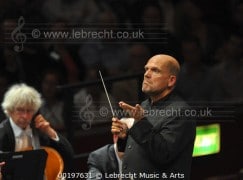Tonight, Jaap rolls out his New York Philharmonic
mainThe incoming music director will go live on the NY Phil Facebook site at 1815 New York time, showing the changes he plans to make to the turbulent band.
We’ll update you in the morning.


The incoming music director will go live on the NY Phil Facebook site at 1815 New York time, showing the changes he plans to make to the turbulent band.
We’ll update you in the morning.

We hear that Stephen Rose, former head of…

There have been some irreparable losses. Germany mourned…

The steady departure of cherished professors at the…

The prolific international conductor Michael Tilson Thomas, diagnosed…

Session expired
Please log in again. The login page will open in a new tab. After logging in you can close it and return to this page.
It’s gonna be dull, folks….
cool opinion
We pick-up this comment with pincers, the way archeologists do, and wonder: what could it mean? Which message is intended to convey? What were the customs and traditions of the tribe, did they have any contact with the outside world? Did they know something about music, about the NY Phil, about Van Zweden? Had they studied his programs with all the orchestras he worked with? Cultural anthropology is a field with ever extending horizons and novel discoveries.
Plenty of new works with “something to say” about our times (whether they’re interesting to the ear is an open question), and a few curveballs thrown in with the standards, so a pretty nice season on paper, already strongly influenced by Borda.
One question worth pondering when it comes to US orchestras : they love commissioning and touting new works, but post-WWII 20th century music is often completely absent from programming. Are the new works going straight for the dustbin after their performances ?
As someone who has heard lots of new works over the years, with very few of them being ones I would be interested in hearing again, the answer is: YES. And often, deservedly so.
What remains in the repertory represents only a minuscule fraction of the compositional output of the times in which the great works were written. The fact is, very little that is composed stands the test of time.
And I’d say, since World War II, that already small fraction has gotten a WHOLE LOT smaller.
You are right.new works don’t mean quality works you will remeber not will I go back to them:DELET straight away.
The CLASSICAL music has set its milestones long ago and nothing & noone will equal it.
At the back of my book there are a lot of contemporary composers who get back at classical standards, working at a revival. You should buy it, it’s not expensive and can always be used under an unstable table.
http://www.amazon.com/Classical-Revolution-Thoughts-Century-Expanded/dp/0486814483
Bullshit,Herr “Doktor”.I assume,the last piece of contemporary music was by hans Pfitzner,1944?
Poor tortured Pfitzner. So much of the more traditional music of that period is dour, gloomy, academic and to be honest, downright stodgy. The journey from Reger to Pfitzner was the reason we needed the 2nd Viennese School, although they turned out be less a breath of fresh air and more an icy wind. Mainly because of the catastrophe they inspired post-war.
Incidentally this is lovely, it’s Pfitzner in a rare lighter moment- almost playful:
https://m.youtube.com/watch?v=VMyOeFeBu0s
He also wrote a children’s opera, Das Christ-Elflein which is probably due a revival. Bits I’ve heard sound great, although knowing Pfitzner it’s probably dramatically a mess.
“The journey from Reger to Pfitzner was the reason we needed the 2nd Viennese School, although they turned out be less a breath of fresh air and more an icy wind.”
To suggest that the Viennese were necessary because of Reger /Pfitzner is to bypass the fact that Reger and Pfitzner were German, not Austrian, and to forget Schreker, Hindemith, Braunfels, Ernst Toch and quite some others who wrote music which was more itneresting and lively than Pfitzner’s.
Pfitzner and Webern both agreed wholeheartedly about the nazis however, they both loved them dearly.
Yes. A second performance is a far bigger event than a ‘Premiere’. Entering the standard repertoire? Almodt unheard of, but it’s all still farbetter in the US than anywhere else.
Almost
If I had the money to commission new works, I would instead spend the money trawling the music from the last 50 years to find pieces that I would want to play again. I think this would be much more useful to the classical music industry than more new pieces which are played once and then ignored.
There is a lot of 20C repertoire that is being dug-out by enterprises like Forbidden Music (Michael Haas), Exil Arte, Leo Smit Foundation, and performed. The Kammersymphonie Berlin has recorded a lot of it, of which I would like to mention a wonderful cello concerto by Ernst Toch from the twenties that sounds like Schönberg without the system and with enthusiastic, easy flair – still full of dissonances but beautiful dissonances that really work (2012 / Crystal Classics N 67071).
https://forbiddenmusic.org/michael-haas/
http://www.exilarte.at/home_en.html
http://www.leosmit.org/leosmitfoundation.php
http://kammersymphonie.de/en/
https://www.amazon.de/Toch-Bunte-Mozart-Transcriptions-Concerto/dp/B06XRPS9Q3
Lots of big, meaty, pieces from Jaap: his first subsription program includes Bruckner’s 8th, later in the season there is Mahler’s Sixth, the Brahms Requiem, Brahms one, the Eroica, the Emperor Concerto with Daniil Trifonov. I am not ashamed to say that I continue to be inspired by music like this, although I am well into my seventh decade. While the American press continues to judge a season by the amount of new music being programmed, I do not hear the public clamoring for more, and am hard put to name any piece premiered in the last several decades that has earned a place in the hearts of audiences